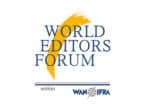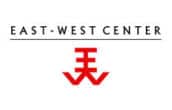|
|
Ethical Journalism News
|
| A Ugandan newspaper has published a list of what it called the country’s “200 top” homosexuals, outing some who previously had not identified themselves as gay, one day after the president enacted a harsh anti-gay law. The list included prominent Ugandan gay activists such as Pepe Julian Onziema, who has repeatedly warned that Uganda’s new anti-gay law could spark violence against homosexuals. (The Guardian)
Continue …
|
|
| The current information crisis in Venezuela, following a surge of protests that mainstream media cannot cover under threat of fines by the government, has compelled netizens to spread news through social media. However, not all users have been sufficiently transparent in their reporting of daily events, which has generated strong criticism about how useful digital media in the country really is. (Global Voices)
Continue …
|
|
| The media need a code of ethics not only for news stories but also for advertisements that generate revenue for media outlets, several panelists said on Monday. They were speaking at a seminar, Public Dialogue: Towards an Ethical Media In Pakistan, organised by Rozan and the secretariat of Pakistan Coalition for Ethical Journalism (PCEJ), in collaboration with the Lahore College for Women University and the Press Council of Pakistan. (The Express Tribune)
Continue …
|
|
| “I suppose the intent was to shock, but you crossed the line.” That is what one unhappy reader had to say about a photo on Wednesday’s front page. And his complaint wasn’t the only one. The image of a man enveloped in flames amid the protest outside Ukraine’s parliament certainly was jarring. But did it really cross the line? (The Globe And Mail)
Continue …
|
|
| We’ve noticed some you have had trouble telling the difference between terrorists and journalists lately (yes, you too Barack: put the BlackBerry down). So we thought as people with some experience of the journalism thing, we could offer you a few handy tips to refer to the next time you find yourself asking: journalist or terrorist? (Index on Censorship)
Continue …
|
|
| Upworthy is careful to not describe itself as a news outlet, which you would think unburdens it from something such as fact-checking. “We’re curators, not journalists — we don’t do investigative reporting, we don’t report breaking news,” Savener writes. “But we absolutely believe in editorial ethics.” (Poynter)
Continue …
|
|
Reports & Resources
|
Crowdfunding Guide for Media Professionals
The Future Media Lab aims to help media professionals explore new opportunities to develop their business. Innovative ways of funding quality journalism and other media projects are one way to achieve the extra bit needed, as many examples across Europe proof already today.
Continue …
|
|

|
|
| “Online comment moderation: emerging best practices” – researched and produced by the World Editors Forum with support from the Open Society Foundations – is a guide to promoting robust and civil online conversation.
Continue …
|
|

|
|
Events and Campaigns
|
Yangon, Myanmar
With Myanmar’s dramatic media reforms in the past two years, the upcoming international media conference in Yangon has been drawing a lot of enthusiasm and anticipation. EJN Director Aidan White will be a speaker at the conference and will discuss how to build ethical journalism practices.
Continue …
|
|

|
|
| The interactive session between readers and the editors and senior management of The Hindu, will be held in Bangalore between 2 p.m. and 5 p.m. on Saturday, March 29, 2014. The primary aim of the interactive session is to mutually learn and work out methods to make our journalism more relevant, powerful and meaningful so that people can exercise their democratic preferences based on informed choices rather than mere rhetoric. (The Hindu)
Continue …
|
|
|
|
|
|
|
|